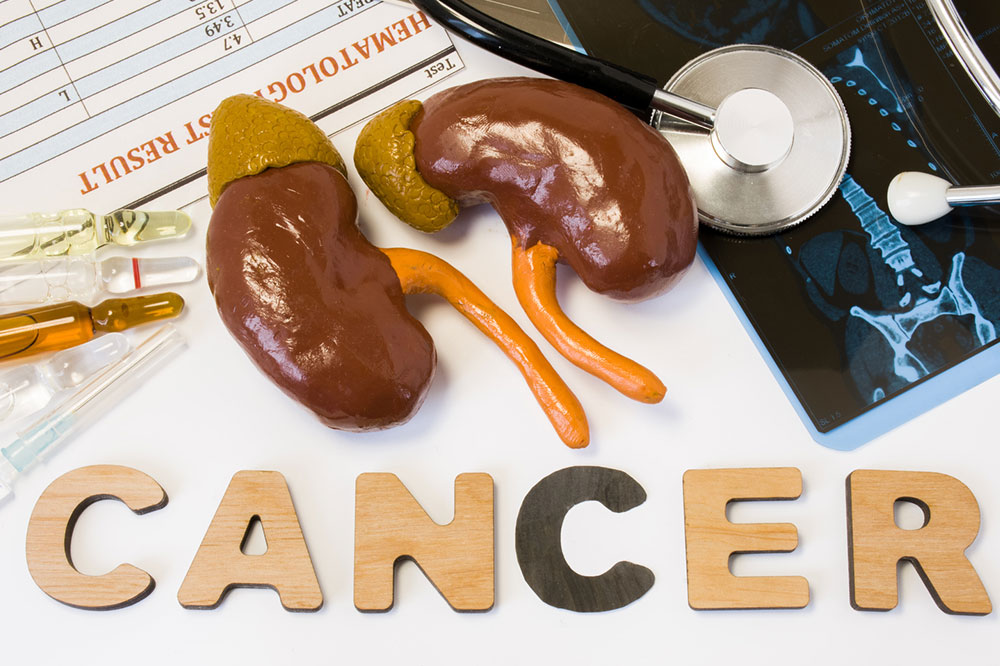
Symptoms and Risk Factors for Kidney Cancer
Cancer that begins in the kidney and later spreads to nearby organs is called kidney or renal cancer. Kidneys are small organs that measure the size of a fist and are located behind the abdominal organs, one on each side of the spine. They play a vital role in purifying our system by clearing out waste from the blood. In this condition, cancer cells are initially formed in the tubules of the kidney, then to all parts of it, and later to nearby organs.
There are several symptoms and risk factors associated with kidney cancer and on the basis of these, its stage is determined and treatment is decided upon.
1. Symptoms of kidney cancer
The symptoms of kidney cancer do not show up in the early stages in many individuals till the tumor grows in size and the cells begin to metastasize further. If symptoms are ignored at early stages it can lead to complications in the treatment for kidney cancer. Some of the common symptoms of the condition are:
- Anemia
- Feeling tired all the time
- Prolonged fever that can last for several weeks along with flu and other infections.
- Loss of appetite and the feeling of having a heavy and full stomach all the time
- Blood in the urine
- Swelling and feeling of lumps on one or both the sides of the abdomen.
- Constant severe lower back pain near the kidney area
- Severe weight loss with no exercise or diet control
- Swollen ankles and legs due to fluid retention in the body
2. Symptoms of metastasized renal cancer
Kidney cancer that spreads to other parts of the body can show other symptoms such as:
- Coughing up blood
- Severe bone pain
- Shortness of breath
3. Risk factors of kidney cancer
There is no exact cause for kidney cancer, however, it is related to several factors that increase the risk for it. Kidney cancer is categorized into 4 stages and is treated accordingly. Some of the risk factors one should be aware of are as follows:
- Gender: Men are more prone to kidney cancer than women.
- Age: Individuals above the age of 40 are at a higher risk of kidney cancer.
- Smoking: Smoking increases the chances of kidney cancer by two times when compared to non-smokers.
- Obesity: Hormonal changes in people suffering from obesity can lead to kidney cancer.
- Long term kidney treatment: Individuals undergoing continuous kidney treatments like dialysis are more prone to developing kidney cancer eventually.
- Unprescribed medicines: Dosing on over-the-counter medicines without a prescription might lead to kidney cancer.
- Genetic disorders: Individuals suffering from genetic disorders such as inherited papillary renal cell carcinoma or Von Hippel-Lindau (VHL) disease are at risk of developing renal cancer eventually.
- Exposure to harmful chemicals: Constant exposure to harmful chemicals such as benzene, organic solvents, asbestos, cadmium and certain herbicides at the workplace or one’s surroundings can lead to kidney cancer.
- Race: Individuals of African descent people are at higher risk of kidney cancer when compared to other races. There are no definite reasons behind it.
- Lymphoma: Patients diagnosed with lymphoma are often also affected by kidney cancer. The reason for this is yet unknown.


